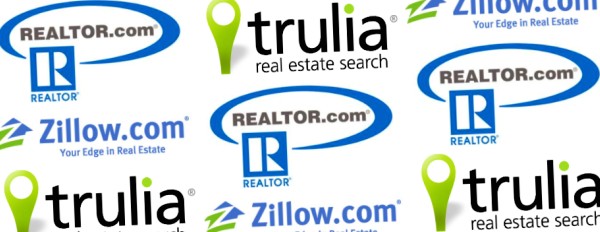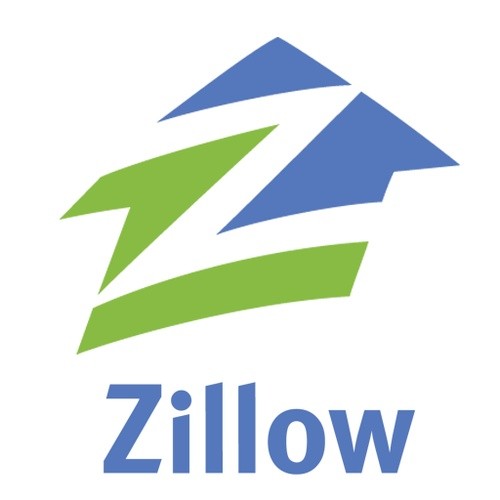Zillow and Trulia Merge to Disrupt the Real Estate Industry
Post on: 1 Июль, 2015 No Comment

Zillow and Trulia Merge to Disrupt the Real Estate Industry
We have all heard the phrase “If you can’t beat ‘em, join ‘em .” Zillow, the most-trafficked real estate listing website, decided to buy ‘em instead. The online real estate company plans to acquire its biggest competitor Trulia for $3.5 billion. which resulted in an initial 15.3 percent spike in Zillow’s own stock price.
Once Zillow takes over Trulia, the companies will dominate the real estate listings market, accounting for 48 percent of web traffic for listings (not including local websites).
A little bit on Zillow and Trulia
Seattle-based Zillow was founded in 2005 to revolutionize real estate by providing deep data and changing the traditional process of buying a home. Zillow is also known for its famous “Zestimate,” which determines an estimate for a home based on a range of publicly available information, including sales of comparable houses in a neighborhood. The company generates revenue by selling ads and by providing subscriptions to real estate professionals.
Similarly, Trulia was also founded in 2005 to simplify the overwhelming process of finding a home with the help of technology. They market their website as having the “inside scoop” and they are also very user-friendly, which of course appeals to many users. The company offers several paid advertising products for real estate agents, which is said to yield a high return on investment.
Recommended for You Webcast: A Week in the Life of an Agile Creative Team
The growth of companies like Zillow and Trulia underlines a not-so-subtle disruption that the Internet has caused in the real estate brokerage market. That said, this disruption is somewhat different than what the Internet did in other industries. For instance, in the travel industry, the Internet and online companies eliminated brokers and other middlemen like travel agents. In this case, what Zillow and Trulia did was open their services not only to agents, but also to buyers, effectively making themselves a sort of information broker.
Before Zillow and Trulia came into the picture, agents and brokers listed their homes on an exclusive collection of MLS listing sites. When they wanted to share findings with consumers, they would either meet with clients or email them properties for them to look. The agents had power. Zillow and Trulia changed the game by transferring that power to buyers to do a lot of the initial research themselves. There were other internet sites that allowed this, but none really drove in both the buyers and sellers.
What does the acquisition mean for both companies?
When the companies eventually combine, a press release from Zillow states that each brand will remain its own identity to continue to offer buyers, sellers, and renters access to vital information about homes for free. They will provide advertising and a software solution that helps real estate professionals grow their business.
This is a tremendous opportunity to combine our resources and achieve even more impressive innovation that will benefit consumers and the real estate industry,said Spencer Rascoff, Zillow CEO.
Trulia CEO Pete Flint will maintain his position and report to Zillow CEO Spencer Rascoff.Flint will also join the Board of Directors of the joint company.
“By working together, we will be able to create even more value for homebuyers, sellers, and renters, as well as create a robust marketing platform that will help our industry partners connect with potential clients and grow their businesses even more efficiently,“ said Flint.
Okay, so what exactly does the merger means for these companies? It’s plain and simple: Both companies get to dominate the marketplace. Zillow and Trulia will generate even more revenue by maximizing the number of agents, brokers and other real estate industry professionals who purchase ads.The innovation that this powerhouse could bring to the real estate market could be huge, although some argue innovation could stall with no dominant competitive threat.
What does this mean for other competitors in the market?
Tougher competition, if they even stand a chance.
Right now, Zillow-Trulia is by far, the biggest online listing portal in the market. Together, these companies can act as a monopoly limiting real competition within the online consumer real estate space.
The reality is that with Zillow acquiring Trulia, there are fewer direct competitors for them to worry about. The competitor to watch is Move Inc. which is affiliated with National Association of Realtors (NAR), a large and powerful industry association. They have half of Zillow’s traffic and three-fourths of Trulias traffic.

Another business affected by the deal is Realtor.com. which used to lead the market in real estate listing data. Realtor.com is also partnered with NAR, yet not even the association has been able to stop these two companies from taking over the market. Realtor.com focused heavility on brokerages, allowing them to miss the opportunity to create a site for direct buyers. But is it too late for Realtor.com to innovate?
A spokesman for Realogy Inc.. which owns real estates sites Century 21, Coldwell Banker and Sothebys, had no comments on the Zillow-Trulia deal. In a statement, the California Association of Realtors said it has concerns that this merger will lead to fewer choices and higher advertising costs for our members and their clients.
A company with too much market share is concerning to the brokerage industry. Less competition most likely means more advertising dollars for Zillow-Trulia, potentially leading to higher advertising rates and lower ROI for agents.
For the rest of players in this industry, Zillow-Trulia could become the Facebook of online real estate leaving the rest of the competition to face the same fate as MySpace.
What does this mean for real estate agents and consumers?
These sites are taking traffic away from the agent and brokerage websites.
Although WSJ states that Zillow users can list their homes for sale, for free, most consumers still prefer to buy or sell a home through an agent. Thousands of agents throughout the country rely on websites like Zillow and Trulia today for market data, listings and leads.
The bottom line is that this seems to be a mutually beneficial relationship for the combined entity, with a yet-to-be seen impact on the consumer. Zillow-Trulia needs real estate agents and brokers to pay for ads, while real estate agents and brokers need Zillow-Trulia to advertise and get listings. Buyers need both.
What are your thoughts about Trulia and Zillow merging?














